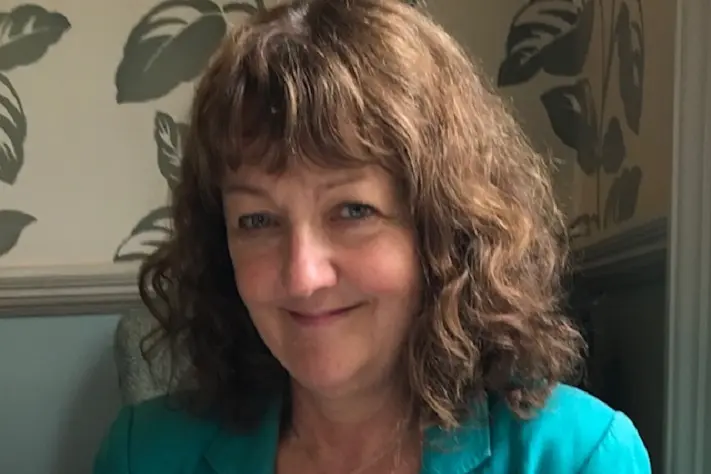19th March 2021
On World Sleep Day (19 March), a news piece by Maggie Fisher, Professional Development Officer at iHV and Sleep & Parenting Specialist, on the importance of safer sleep

Maggie Fisher, Professional Development Officer at iHV and Sleep & Parenting Specialist
March 14 – 20 is national sleep awareness week and 19 March is World Sleep Day – providing a useful call to action for thinking about adult, child and infant sleep health.
Nationally, we are carrying a sleep debt – many adults and children are sleep deprived and not getting the amount of quality sleep needed at night. Decades of research have shown that sleep is fundamental for our safety and mental and physical wellbeing.
The current pandemic has brought about profound changes in our daily life, routines, work, schooling, how we interact with others including friends and family, as well as our sleep habits and patterns. In April 2020, the Mental Health Foundation1 surveyed 4,246 UK adults aged 18 and over, with more than a quarter (26%) of UK adults saying the coronavirus had negatively affected how well they slept in the previous two weeks. In their survey, nearly half (48%) of adults agreed that sleeping badly has a negative effect on their mental health. Adults reported that they felt more irritable or angry (43%), more stressed and overwhelmed (42%), more anxious (35%) and more tearful (21%) in the previous month because of poor sleep.
The survey1 also highlights that the impact of the COVID-19 pandemic on sleep is not distributed equally – those most disadvantaged are more likely to be at higher risk of sleep loss – in particular, mothers of young children unable to access support or childcare, those living in homes with restricted access to outdoor space or natural light, people experiencing financial difficulty and key workers2,3. Health visitors and their teams play a key role in supporting such families.
Safer sleep for infants and pregnant women is also vital and is an area of preventable deaths that health visitors can focus on during all their contacts with families – but particularly during sleep awareness week. Tragically, 240 babies annually die suddenly and unexpectedly in the UK due to Sudden Infant Death Syndrome (SIDS). Thankfully the number of sudden infant deaths has fallen by 82% since the “Back to Sleep” campaign in 1991.
At the iHV we have just updated our Safer Sleep Top Tips for Parents see here. As health visitors, it is always useful to be having those very open honest discussions around safe sleep at every contact as it can save lives. Many parents who did not intend to bed share often end up doing so, especially if breastfeeding – so it is important, they know how to do this safely. Many a parent gets up at night to feed or calm a crying baby. Exhausted parents can all too easily fall asleep in a chair or on a sofa. Parents need to feel listened to and understood, so they can be honest about their sleeping arrangements.
Tommy’s has some useful information and a video on sleeping safely during pregnancy here. When seeing pregnant women, finding out how well they are sleeping and finding out if they are aware of the safe sleeping during pregnancy is a useful conversation to have.
As health visitors we are in the privileged position of reaching out to families in their own homes – we have the ability to make a difference and save lives, prevention is at the forefront of everything we do.
Maggie Fisher, Professional Development Officer at iHV and Sleep & Parenting Specialist
References
- Mental Health Foundation October (2020) Taking Sleep Seriously https://www.mentalhealth.org.uk/sites/default/files/MHF_Sleep_Report_UK.pdf
2. Altena E, Baglioni C, Espie CA, Ellis J, Gavriloff D, Holzinger B, et al. Dealing with sleep problems during home confinement due to the COVID-19 outbreak: Practical recommendations from a task force of the European CBT-I Academy. J Sleep Res. 2020;29(4).
3.Falkingham J, Evandrou M, Qin M, Vlachantoni A. “Sleepless in Lockdown”: unpacking differences in sleep loss during the coronavirus pandemic in the UK. medRxiv. 2020;

